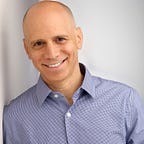The Amateur Mindset And Professional Approach — A Formula For Growth
One of my favorite audio books is History’s Greatest Military Blunders by The Great Courses. No doubt, you’ve heard this phrase before.
History repeats itself.
That axiom holds true in military history too. Most of the blunders share common themes. Poor decisions, poor planning, failure to adapt are the main causes. Sometimes plain old incompetence leads to their downfall. You can trace several of these blunders to one fatal mistake.
Arrogance
Arrogance in his own ability led Napolean to take unwarranted risks in his invasion of Russia.
Arrogance in their military superiority led the British to disaster in the First Boer War.
The same arrogance led to the downfall of the French Knights in the Battle of Courtrai in 1302.
Is Confidence The Same As Arrogance?
We often confuse arrogance with confidence. The difference is subtle but crucial.
A confident person feels self-assured in her abilities.
An arrogant person takes it to the extreme. He holds an attitude of superiority. The arrogant person fails to recognize the limits of his abilities or assumptions.
The arrogant person believes he knows everything about his domain of expertise.
My Brush With Arrogance
Four years ago, I worked my way into copywriting and marketing. I had a simple plan.
- Take a few courses from respected practitioners.
- Read a few books written by the masters.
Armed with that info, I would know all they know. In a few short months I would have all the knowledge I need.
New clients stood no chance against me. I possessed all the answers. I refused their input. When peers offered their suggestions I rebuffed them. Who are they to critique me?
It didn’t take long. My lack of knowledge became clear. I had to acknowledge it. I knew almost nothing. I was an amateur. Worse, I was an amateur masquerading as an expert.
The Virtue Of The Amateur
When I began my venture, I estimated one year before I gained all this knowledge. After my disastrous start, I re-estimated it would take another year.
It’s now four years later. I learn and write as much as anyone. How would I estimate my knowledge level? I know less than 1% of what I need to know. The more l learn, the more I realize I don’t know.
That’s all we are: amateurs. There isn’t time to be anything else — Charlie Chaplin
The amateur mindset, as Chaplin alludes to, is the belief that you know only a fraction of all there is to know. We don’t live long enough to become professional.
This mindset frees you to say “I don’t know.”
When you’re comfortable saying “I don’t know” you’ve adopted the amateur mindset.
Being comfortable with “I don’t know” opens you up to discover the unknown.
The Professional Approach
This does not mean you act like an amateur. Here is the distinction.
Your mindset is that of an amateur.
Your approach is that of a professional.
The amateur mindset protects you from the arrogance of a know-it-all. Nobody knows it all.
The professional approach ensures your output meets or exceeds your customers’ expectation. You deliver what you promise when you promise.
The amateur mindset gives you permission to say “I don’t know.”
The professional approach demands you find the answer. No lies. No covering your tracks.
Call To Action
I write at the crossroads of creativity, marketing and persuasion. Find my best tools here.
One more thing. If you found value in this story, please click on the “clap” button below. That helps others find it. Or, share it on social media. Let me know what you think on Twitter @barry_davret
